Working to Empower the People and Environment of Palestine
Posted in: Voices from the field
As an environmental studies graduate and a recent volunteer in the West Bank, where I saw firsthand the threats to the natural environment, I am reflecting on Earth Day this year through the context of the Palestinian natural landscape. The environmental situation in the Palestinian territories is devastating. A range of factors create an unhealthy and unjust environment for citizens in this region.
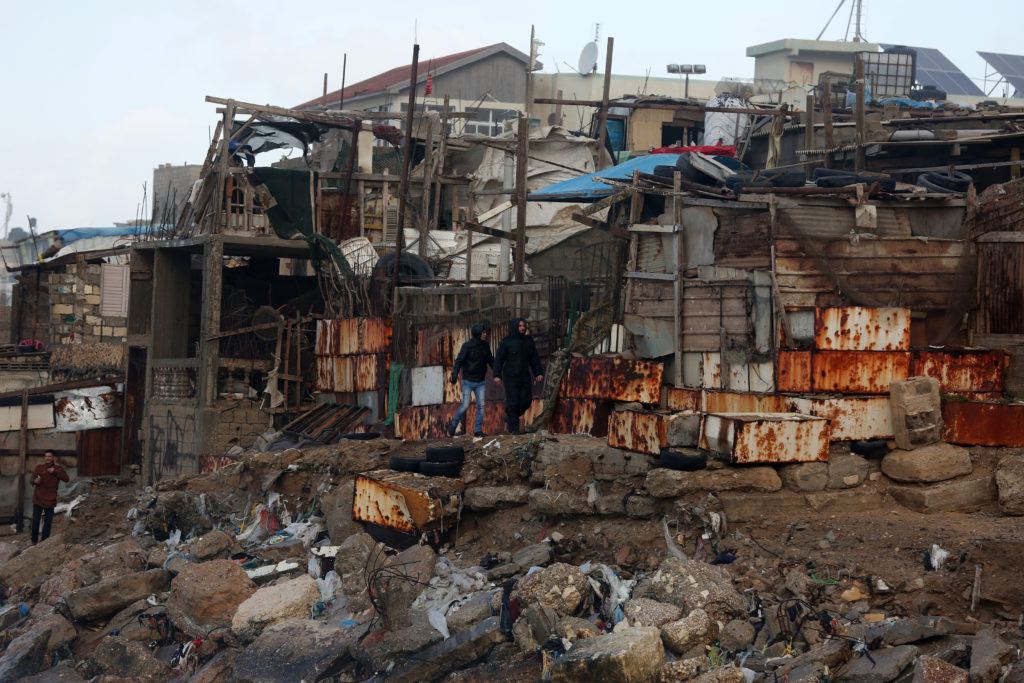

In a location that is already vulnerable to the hot and dry desert climate, global climate change is affecting natural resources like water and air – the most basic needs of life on Earth. The daily average per-capita water consumption in the West Bank is shocking 84.3 liters, compared to 302-378 liters in the United States! This is devastatingly low (WHO guidelines indicate people should have access to a minimum of 100 liters) due to the severe restrictions the Israeli government places on the ability of Palestinians to manage their water resources. This leaves them high and dry, literally. Of the natural water resources to which Palestinians would normally have access, the politics of the region leaves a mere 13% of the natural water for the 2.95 million Palestinians who live in the West Bank. To access enough water, Palestinians are forced to buy their own water from outside companies.
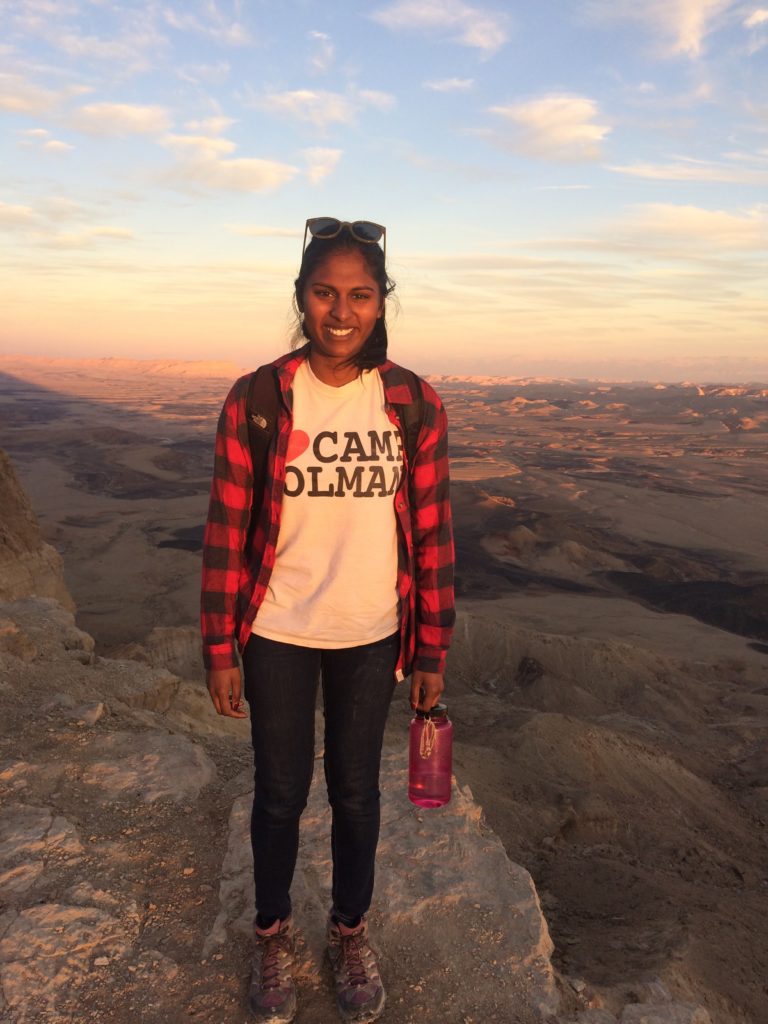

During my time in Palestine last year, cartons of two liter plastic water bottles were the norm for us volunteers, while giant purchased black water tanks were the norm for most households. Sometimes there was enough water for drinking and even bathing. Sometimes there just wasn’t any water at all and that situation could last for days. The predicament brought home in dramatic fashion the environmental justice work I was studying. The state of the environment that I witnessed is an incredible injustice to the people and plants who have called this land their home for many generations. The limitations on natural resource management in the West Bank is putting a huge strain on the local environment. And communities are less and less able to cope.
As a current intern at Anera in Washington, DC, I have seen how a multidimensional organization can help maximize the resources Palestinians still have in ways that are sustainable for communities in the long-run. The goal is not to simply build and leave, rather to provide resources and empower, so that communities can continue to thrive on their own. Projects take a long time to plan and implement, partly because Anera has to be strategic and creative given the current environmental situation in both the West Bank and Gaza. Sustaining the environment is a priority in Anera’s work – sometimes even the primary goal for a project.
Water Access for Palestinians
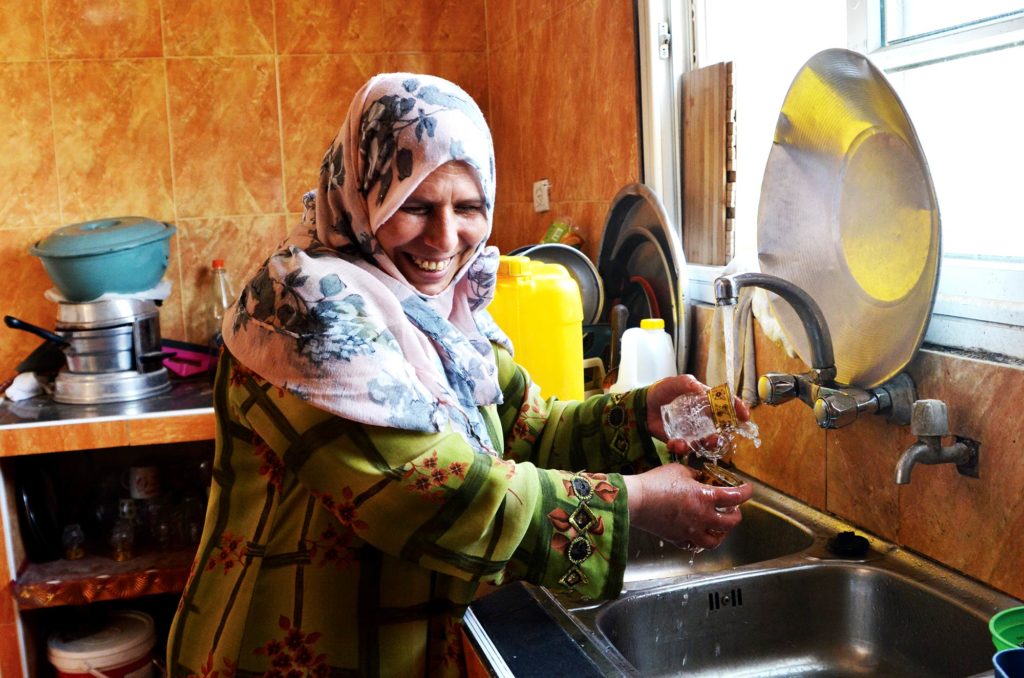

In Gaza and the West Bank, Palestinians depend on natural aquifers and rivers for water that is piped to homes. Access to water has eroded over time, due to over-consumption and urbanization, war destruction of networks, Israeli government restriction, or some combination of these. This has led to extreme water scarcity for Palestinian communities, where water is already scarce in the naturally arid and hot climate of the Mediterranean region. Anera responds to the water crisis in these areas to help both the people and the environment.
Anera has done extensive work in restoring or constructing water pipe networks that help connect families with accessible water resources. Another resource Anera has provided are rain barrels for households so families can increase their water intake to normal levels. The organization both constructs and provides fuel for desalination plants and pumps that take out the salts in the water to make it drinkable before distributing to communities.
In 2016, Anera built three reservoirs in the West Bank, connecting 83,870 Palestinians to a freshwater source. These critical projects help bring fresh water to Palestinian communities that they were previously unable to access due unstable infrastructure and restrictions by the Israeli government.
Preventing Pollution from Sewage & Reusing Wastewater in Palestine
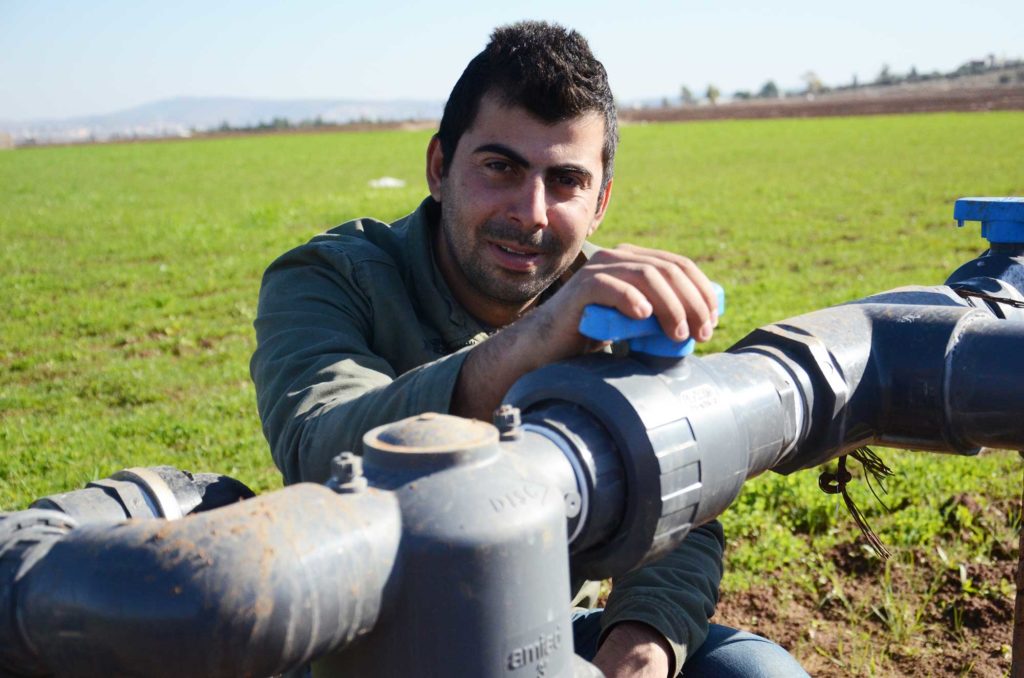

Another large concern in the West Bank and Gaza is waste water and sewage that is polluting drinking water resources as well as the land. This presents a plethora of problems including water-borne illness and disease, ruined soil and farmland, and even less water available for drinking. Anera has led the way in large-scale waste water recycling in Palestine, building a reservoir for treated wastewater in the Jenin area of the West Bank so that farmers could irrigate and revitalize their crops with water that would otherwise have been discarded.
The irrigation system has brought back the fruitful abundance for which this valley is known. Anera led capacity-building trainings for farmers to understand how the process works and to share good agricultural practices so this resource can be utilized sustainably. Nourishing the hot arid land with grey water improves the health of the natural ecosystem through growth of new life.
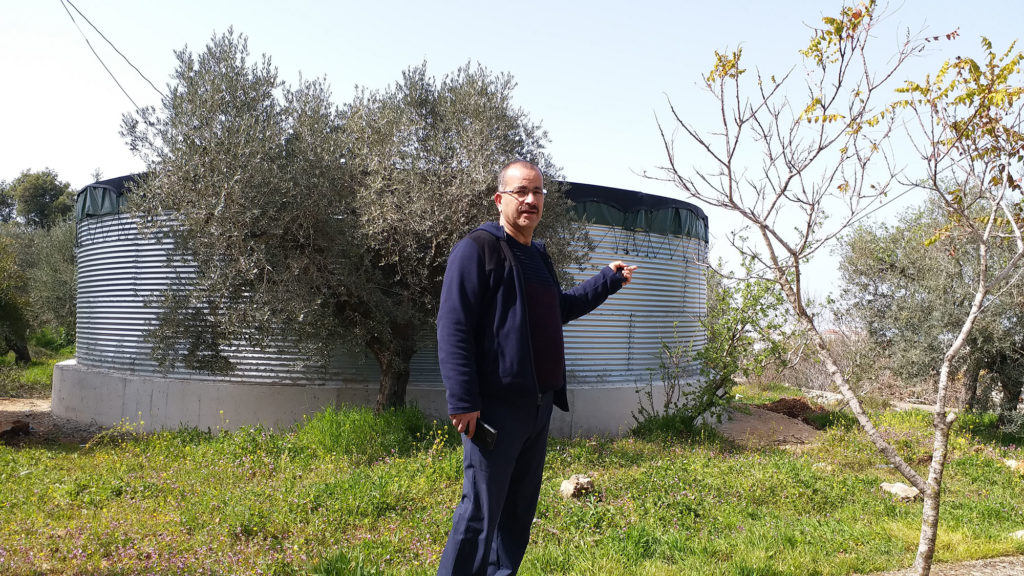

The city of Ramallah in the West Bank has a functioning wastewater treatment plant, but until recently did not have a designated storage container for the treated water. Anera is constructing a reservoir that sits high on the edge of the city to store and distribute the treated water. Gravity helps push the water through pipeline networks to the city where it is used to irrigate gardens and put out fires. Anera’s efforts are helping Ramallah citizens access water resources and practice better urban water management.
Upgrading & Building Sustainable Infrastructure in Gaza
Finally in Gaza, with a population of almost 2 million, water is in especially high demand. 96% of the ground water is undrinkable. Palestinians in Gaza rely on a deteriorating pipeline network to get their water from the coastal aquifer. A fortunate 40% of families receive water every two days via pipe. Anera has shown great leadership and support in Gaza by working creatively to implement safe and accessible resources to connect fresh water to the community. Repairing old and damaged pipes helps get the water to the right place and keeps heavy metals from erosion out of the mix. Anera fixes sewage and wastewater treatment plants so that only clean water flows through the pipes and into homes.
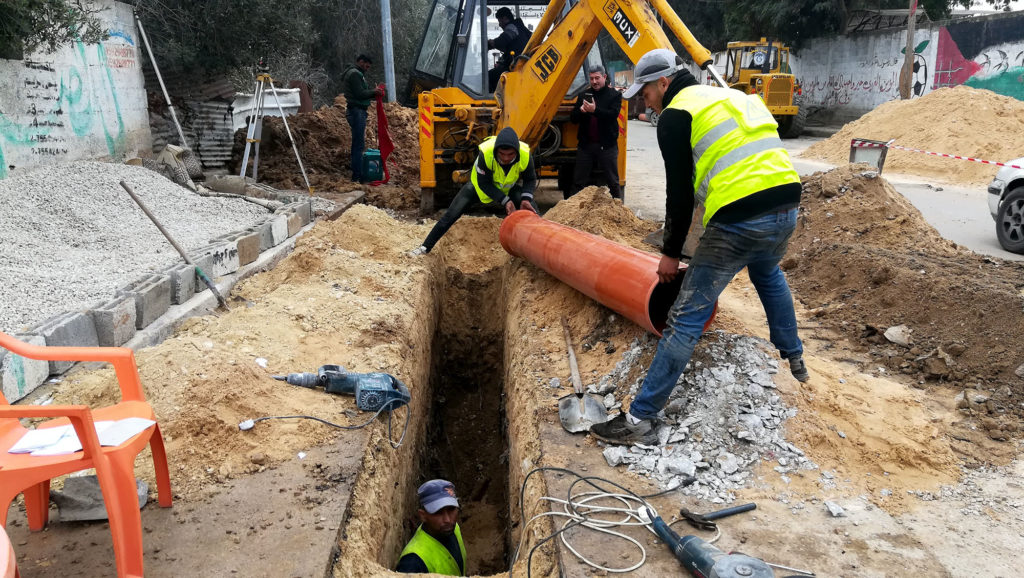

Through a holistic approach that integrates with other programs, Anera also helps install family greenhouse gardens that use wise drip irrigation techniques. Also, swapping out thirstier crops for ones that require less water and also the ability to grow in saltier water, like tomatoes, helps to keep water supplies more sustainable. Tomatoes are a staple ingredient to traditional Palestinian cooking. Used for breakfast, sandwiches, and salads, tomatoes are part of the rich and colorful Palestinian cuisine, which I enjoyed immensely last year.
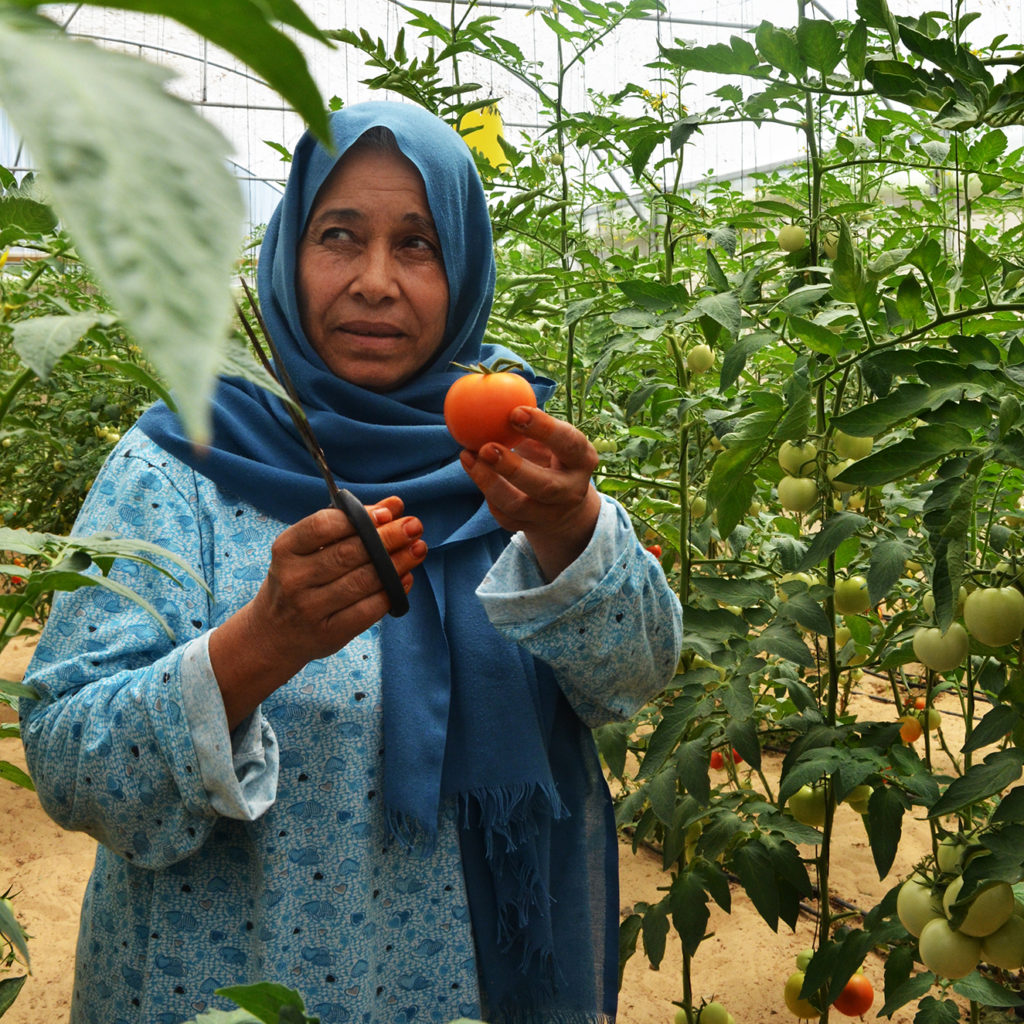

Sometimes, Anera’s work includes helping to fuel the sewage and wastewater treatment plants, so that there is adequate electricity to process the water. Recently, Anera has been looking toward more sustainable ways to provide electricity both in Gaza and the West Bank. Earlier this year, we installed solar panels at two Gaza clinics, so they could continue treating patients during power outages, which happen often. In the West Bank, Anera fitted two schools with solar power energy which will help cut expenses that are difficult to meet. The sun is a great renewable source of energy in this region! With the green light from the Palestinian Authority to use solar power for homes and businesses, Anera will continue to fundraise and install solar panels to connect communities with sustainable resources that ensure the well-being of Palestinians and the environment.
I am very impressed with the scope of environmental planning and focus that go into Anera’s programs and projects. Anera does this work to equip Palestinian communities with long-lasting tools and resources that empower and generate self-sufficiency over time. All humans deserve a healthy and strong environment, and Anera recognizes this in Palestine. I am happy to be a part of Anera’s team as we join together to celebrate the earth on April 22nd.
